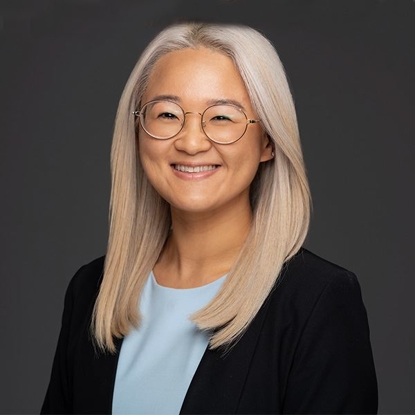
Florida Elective Share Laws
Changes to the Elective Share Laws in FL
In 1975, Florida abolished dower and courtesy and gave surviving spouses the right to an “elective share” of the decedent’s estate. At the time, the elective share could be made against probate assets, so a decedent could still exclude their spouse by leaving nothing subject to probate. In 1999, the Florida legislature substantially revised the elective share laws to make them more expansive and to ensure that a surviving spouse could not be left with nothing.
What Assets Are Included Under Florida’s Elective Share Laws?
The elective share is an amount equal to 30% of the elective estate, as defined by Fla. Stat. s. 732.2035. Property that is part of the elective estate includes the following:
- All property, wherever located, that is subject to estate administration in any state of the United States or in the District of Columbia
- Pensions and retirement plans, Joint bank accounts, pay on death accounts, revocable trusts, and Totten trusts
- Property held in joint tenancy and tenancy by the entireties (limited to decedent’s interest in the property)
- Certain irrevocable transfers, including transfers with a retained right to income or principal or retained right to discretionary principal distributions
- Life Insurance policies payable to someone other than the surviving spouse (includible value limited to decedent’s interest in net cash surrender value immediately before death)
- Transfers made within one year of decedent’s death
- Irrevocable transfers to an elective share trust
- Property passing directly to surviving spouse
Elective Share Example #1:
The decedent has a gross estate of $1,000,000, which breaks down as: a $500,000 home owned jointly with the wife (so only $250,000 of the value is the decedent’s), a $100,000 CD pay on death to the daughter, a $400,000 brokerage account subject to probate and a $250,000 life insurance policy payable to the wife.
Under this plan, the wife is receiving $500,000 ($250,000 from the decedent’s interest in the home and $250,000 in life insurance), which represents 50% of the decedent’s estate. Because the wife is receiving more than the elective share, she would not be entitled to recover any additional amounts by filing for an elective share.
Elective Share Example #2:
The decedent has a gross estate of $1,000,000, which breaks down as: a $250,000 home owned jointly with the wife, five $100,000 CDs payable on death to children and grandchildren, and $250,000 in stocks in their sole name.
Under this plan, the wife is only receiving $125,000 from the decedent and would be entitled to additional amounts under the elective share laws. The wife is entitled to 30% of the elective estate, which is $1,000,000, so the wife is entitled to receive $300,000. She is already receiving $125,000 by operation of law (joint property passing to her), so she can seek an additional $175,000 from the decedent’s other assets and the beneficiaries are liable to her and will have to contribute funds they received in satisfaction of her elective share. Under Fla. Stat. §732.2145(2), the personal representative has a duty to enforce contribution from the recipients of the elective estate once the court has ordered contribution.
Can Elective Share Be Barred or Waived in Florida?
The Florida elective share may be barred or waived by the existence of a valid pre-nuptial agreement or other written agreement executed either before or after marriage. The Florida elective share can also be barred as untimely if the surviving spouse fails to elect it within the period set forth in Fla.Stat. §732.2135, which is on or before the earlier of the date that is six months after the date of service of a copy of the notice of administration on the surviving spouse; or the date that is two years after the date of the decedent’s death.
Our FL Elective Share Attorneys Can Make a Difference in Your Case
As you have likely gathered, Florida elective share law is complex, which is why individuals should seek guidance from a skilled elective share attorney in Florida to prosecute or defend a claim for an elective share. If you need an attorney to represent you in connection with an elective share claim in Florida, then please contact Adrian Philip Thomas, P.A. to speak to one of our team members.
Call (954) 764-7273 to schedule your free case consultation today so we can review your situation.

The Stories That Matter
Read Our Client Thank You Notes
-
"Please know how much I appreciated your hard work and effort representing me!"Jeff, please know how much I appreciated your hard work and effort representing me! Thank you for putting up with me and for never making me feel inept.- S.H.
-
"We cannot adequately express our gratitude for your excellent work in the resolution of this matter."I don't think there is a better way to express how we feel about these attorneys than to show our final message to them: Ryan & Adrian: We cannot adequately express our gratitude for your excellent work in the resolution of this matter. While certainly- MB & KB
-
"Would not hesitate to use him in the future."
Took the time to explain to me what was going on with my case in way that made sense. Would not hesitate to use him in the future.
- F.S. -
"Adrian, Thanks, you’re doing a great job and you’re the best and only lawyer that has been ethical and professionally serious about this case."Adrian, Thanks, you’re doing a great job and you’re the best and only lawyer that has been ethical and professionally serious about this case. You have great communication skills as well. Thank you.- L.A.
-
"I appreciate all your help with my case and your professionalism"Hi Michele, I appreciate all your help with my case and your professionalism. Jeff and Esther were extremely helpful, especially considering the difficult circumstances.- S.J.
-
"Thank you for your time, kindness and help."Mr. Trinkler, Just want to say thank you for your time, kindness and help.- G.W.
-
"Michele, Thank you. This speaks to the excellent work Mr. Thomas & yourself have done."Michele, Thank you. This speaks to the excellent work Mr. Thomas & yourself have done.
-
"Thank you for all you have done."Hi Ryan, Thank you for all you have done. Truly feeling relief and a release, being free from lawsuit. Just wanted to tell you how much I depended on you, and appreciate all you have done.- E.D.



















